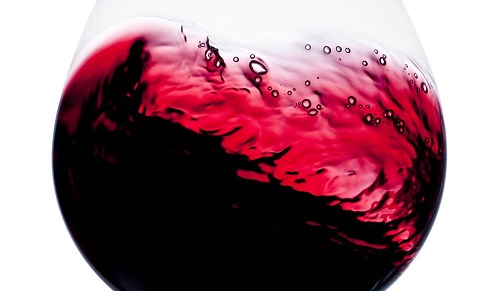FWP:
SETS == BAH; SYMMETRY
WINE: {49,1}
The clever use of bah means that the clause it introduces could be either restrictive and adjectival ('intoxication-with-the-relish-of-the-Cupbearer's-negligence is destruction') or unrestrictive and adverbial ('intoxication is destruction, with/through the relish of the Cupbearer's negligence').
Then, halāk can mean, as one possibility, 'destruction'; in this sense it can share the idiomatic usage of 'Doomsday' [qiyāmat] or 'disaster' [balā]. It can thus be used in an admiring and complimentary way, to praise someone's irresistible and deadly beauty (among many examples, {10,11} comes to mind). Here, that sense seems to be invoked by the word 'relish, taste' [ẓauq], which precludes the possibility of taking the verse as a complaint about the 'negligence' of the Cupbearer in not providing wine. That 'negligence' obviously has a 'relish' of its own. Alternatively, halāk can also mean 'destroyed' (see the definition above), the reading that the commentators prefer.
In the second line, the grammar creates a marked effect of 'symmetry': we can read either 'A is B' or, with equal felicity and legitimacy, 'B is A'.
If we put various ones of these mix-and-match possibilities together, here are some of the possible readings that result:
=Intoxication-with-the-relish-of-the-Cupbearer's-negligence is destruction: there's no need for wine, since a single flicker of the Cupbearer's negligent eyelid is enough to 'wreck' you like a wave of wine.
=Intoxication, with the additional relish of the Cupbearer's negligence, is destruction: simple intoxication with wine is quite enough in itself, but when it's compounded with the relish of the Cupbearer's negligence, the effect is devastating indeed: a single flicker of the Cupbearer's negligent eyelid is as overpowering as an additional wave of wine.
=Intoxication in the rakish ones, through the relish of the Cupbearer's negligence, is destroyed: the rakish ones are so overpowered by the relish of the Cupbearer's negligence that they no longer even think about drinking or intoxication: to them, even a wave of wine is nothing more than an evocation of the Cupbearer's drowsy/negligent eyelid.
=Intoxication itself, through the relish of the Cupbearer's negligence, is destroyed: the essential 'wave of wine', overcome and lulled by the charm of the Cupbearer's own drowsiness/negligence, doesn't slosh around enticingly in the wineglass but seems to ripple gently, like an eyelid flickering over a drowsy or indifferent eye.
A helpful bit of wordplay is the double meaning of ;Gaflat as both 'negligence' or 'heedlessness' in general, and something like 'drowsiness' or even a 'swoon' (see the definition above). Thus in the latter meaning, it may influence the 'sleepy, drowsy' [ḳhvāb-nāk] eyelid to imitate it; Bekhud Mohani speaks of 'a dream of wine'. And of course, the Cupbearer's 'negligence' may also be feigned; such a show of assumed indifference would then become part of his coquetry, and would redouble the effect of his flirtatious charm.
Still, after the various possibility- threads have been spun
out and duly appreciated, the verse isn't all that compelling. The equation
of a 'wave of wine' with a 'drowsy eyelid' is so forced, and so implausible,
that it has a kind of show-off quality: 'How clever I am to think of something
as bizarre as this!'

Nazm:
The Cupbearer's style of displaying negligence has destroyed intoxication as well, and with this relish and ardor the wine is becoming so self-less and overflowing that the wave of wine is a sleepy eyelid on the eye of the wineglass. (251)
== Nazm page 251